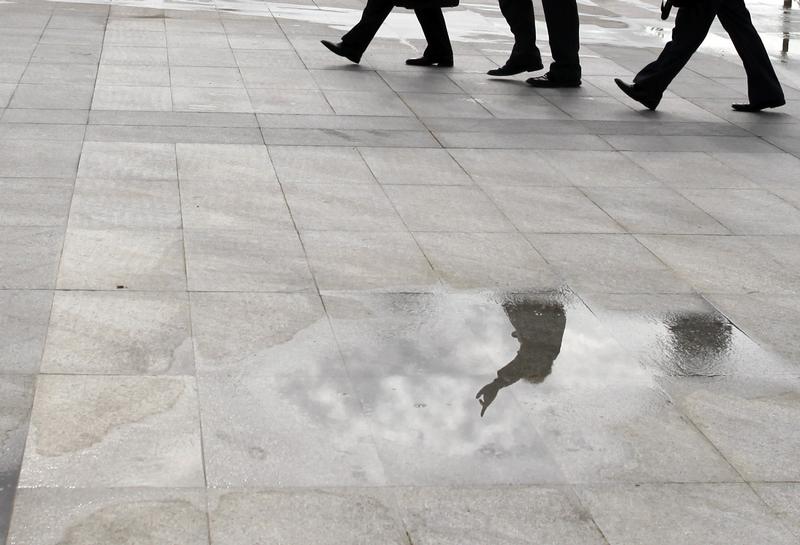When officials from Burma’s commercial capital Rangoon toured six European countries in June, they were hoping to drum up investment in transport, energy and education.
Instead, they were bombarded with questions about the country’s treatment of the Rohingya Muslim minority, who have long complained of persecution by the Buddhist majority in the oil-rich, ethnically divided western state of Arakan.
“In each of every country, that issue was always brought up,” Hlaing Maw Oo, secretary of the Yangon City Development Committee, told Reuters after the 16-day trip.
The situation in Arakan has worsened dramatically since then, with more than 400,000 Rohingya fleeing to Bangladesh to escape a military counterinsurgency offensive that the United Nations has described as “ethnic cleansing.”
Western trade and investment in Burma is small, but there were hopes that a series of reforms this year would prise open an economy stunted by international sanctions and decades of mismanagement under military rule.
With most sanctions now lifted, an expected flood of Western money was seen as a key dividend from the transition to civilian rule under Nobel laureate Aung San Suu Kyi. Regional diplomats saw it balancing China’s growing influence over its neighbour.
But Suu Kyi has been beset by international criticism for saying little about human rights abuses against the Rohingya, and lawyers, consultants and lobbyists say the European and US companies that had been circling are now wary of the reputational risks of investing in the country.
Louis Yeung, managing principal of Rangoon-based investment firm Faircap Partners, said one of his business partners — a listed, US-based food and beverage company — decided to hold off its plan to enter the Burmese market for three to five years, citing factors including slower-than-expected reforms and the Rohingya crisis.
“Their conclusion is that it wasn’t the right time for them,” he said. “They want to see more traction from the government and Rakhine [Arakan] is not helpful.”
On hold
The pressure has been growing in recent months, even on existing investors, with rights group AFD International calling on foreign firms to stop investing in Burma.
A small group of investors in US oil major Chevron filed an unsuccessful motion at its annual general meeting urging it to pull out of its production sharing contract with a state-run firm to explore for oil and gas, while Norwegian telecoms firm Telenor, which runs a mobile network in Burma, issued a statement calling for human rights protection.
Chevron declined to comment on its investment in Burma, while Telenor did not respond to several requests for comment.
Bernd Lange, chair of the European Parliament Committee on International Trade, said last week his delegation postponed a visit to Burma indefinitely, saying the human rights situation “does not allow a fruitful discussion on a potential EU-Burma investment agreement.”
Khin Aung Tun, vice chairman of the Myanmar Tourism Federation, told Reuters global firms planning to hold conferences in Burma were now considering other locations.
“People were just starting to see Myanmar as a ‘good news’ story,” said Dane Chamorro, head of Southeast Asia at Control Risks, a global risk consultancy.
“Now you can imagine a boardroom in which someone mentions Myanmar and someone else says, ‘Hold on, I’ve just seen something on Myanmar on TV: villages burned down, refugees, etc.’”
In an interview published in Nikkei Asia Review on Thursday, Suu Kyi acknowledged it was “natural” for foreign investors to be concerned, but repeated her view that economic development was the key to solving poor Arakan State’s long-standing problems.
“So investments would actually help make the situation better,” she said.
In China’s orbit
Burma’s $70 billion economy should be a strong investment proposition for Western firms. It boasts large oil and gas reserves and natural resources such as rubies, jade and timber. Wages are low and its youthful population of more than 50 million is eager for retail and manufacturing jobs.
In April, Burma passed a long-awaited investment law, simplifying procedures and granting foreign investors equal treatment to the locals. A game-changing law allowing foreigners to buy stakes in local firms is expected later this year.
“The investment conditions were improving,” said Dustin Daugherty, ASEAN lead for business intelligence at Dezan Shira & Associates, a consultancy for foreign investors in Asia.
Burma’s economy may not suffer much, however, if Western firms shun the country — or even if their governments were to re-impose some sanctions, although that appears unlikely for now.
Suu Kyi has sought to deepen relations with China at a time when Beijing is keen to push projects that fit with its “Belt and Road” initiative, which aims to stimulate trade by investment in infrastructure throughout Asia and beyond.
Burma trades with China as much as it does with its next four biggest partners: Singapore, Thailand, Japan and India. None of that top five participated in previous sanctions.
Trade with the United States is only about $400 million and US investment is just 0.5 percent of the total. Europe accounts for around a 10th of investment, while China and Hong Kong make up more than a third, and Singapore and Thailand another third.
[related]
Than Aung Kyaw, deputy director-general of Burma’s Directorate of Investment and Company Administration, told Reuters European investors might have “second thoughts,” but he expected Asian investors to stay put.
China is already in talks to sell electricity to energy-hungry Burma and pushing for preferential access to a strategic port on the Bay of Bengal. In April, the two countries reached an agreement on an oil pipeline that pumps oil across Burma to southwest China.
“It is going to feed Aung San Suu Kyi straight into the hands of [Chinese President] Xi Jinping,” said John Blaxland, director at the ANU Southeast Asia Institute and head of the Strategic and Defence Studies Centre.



